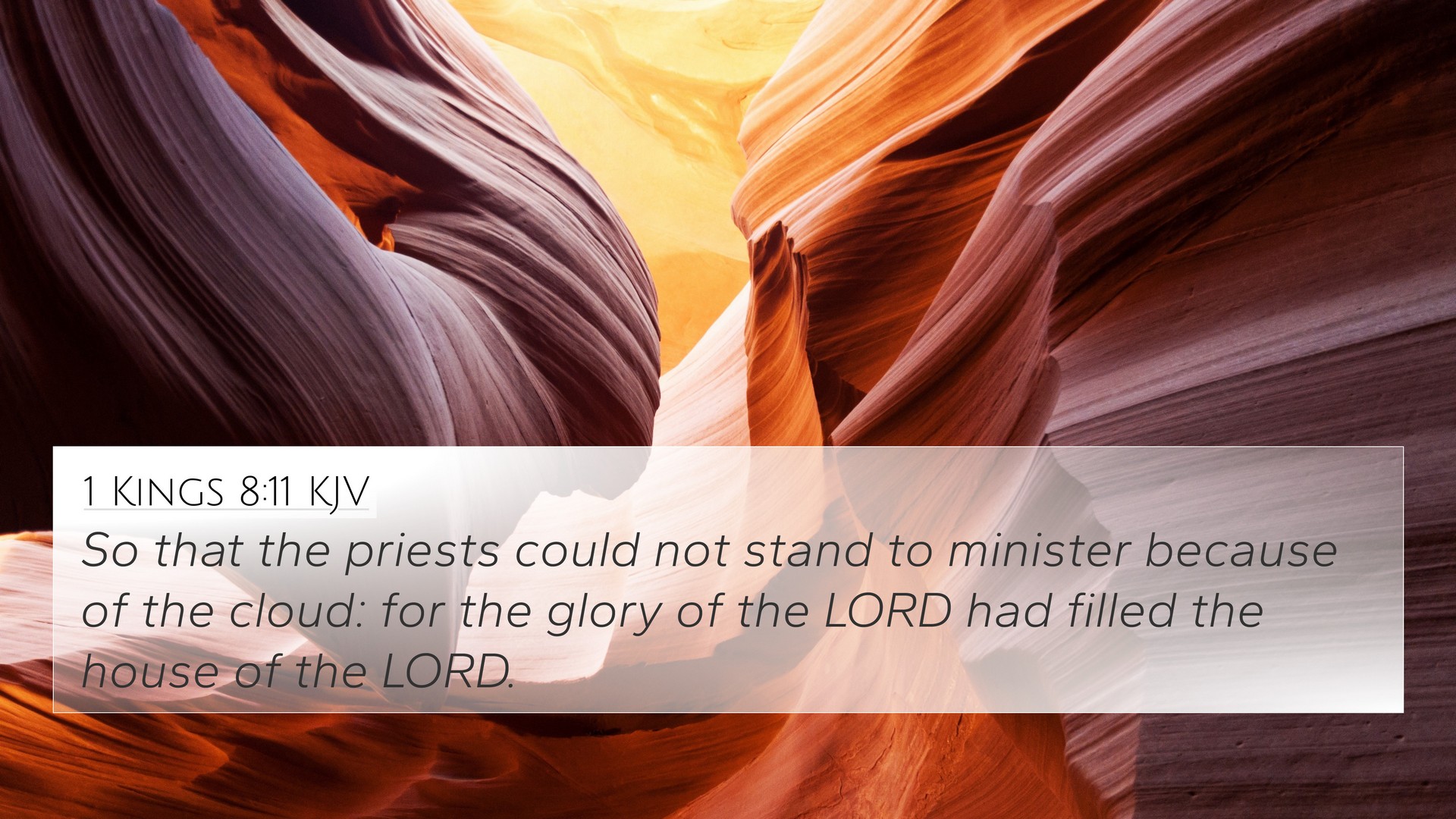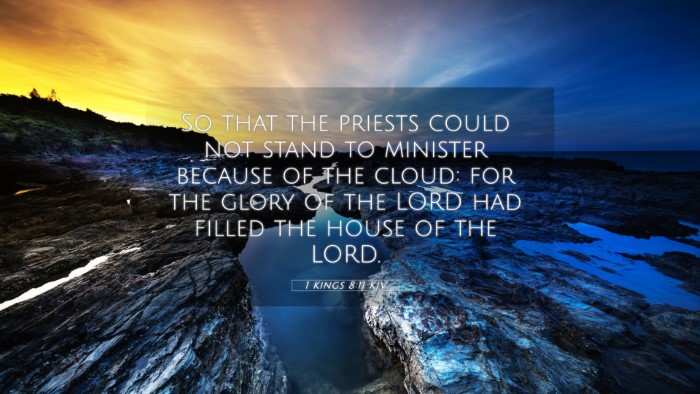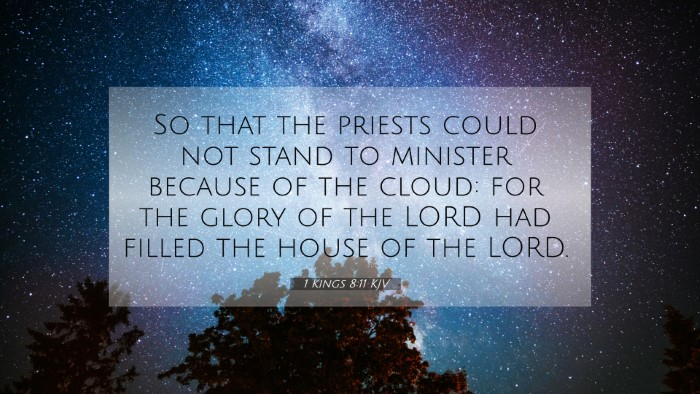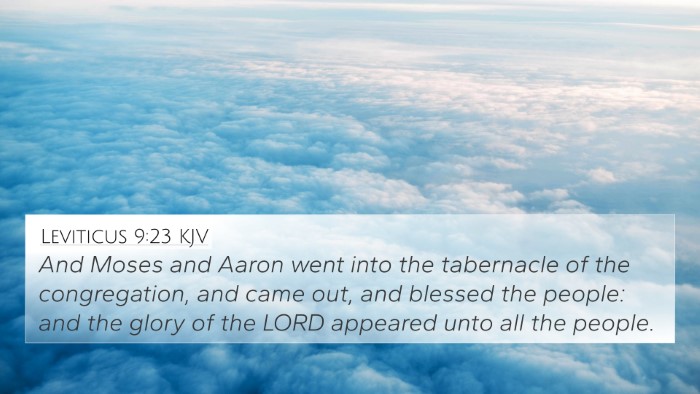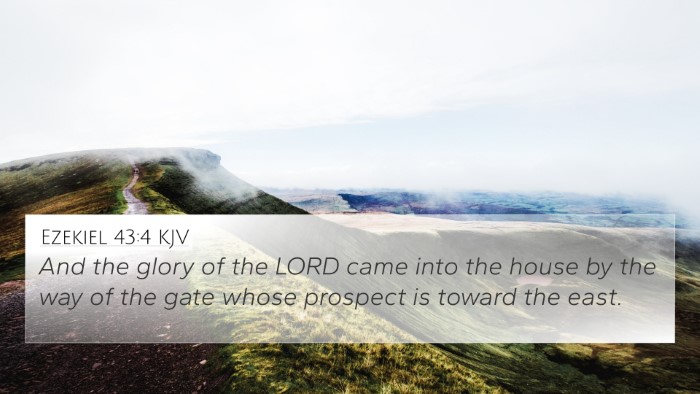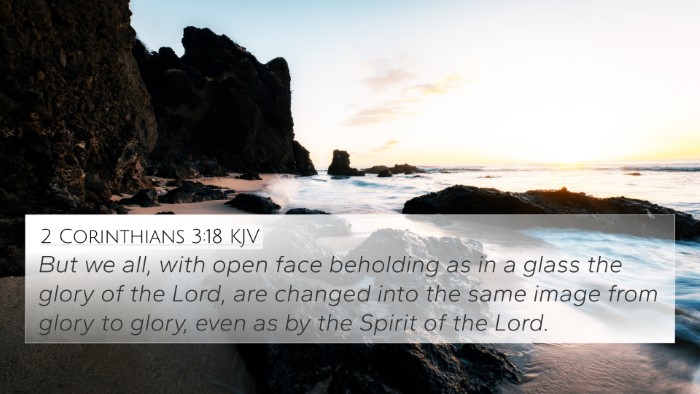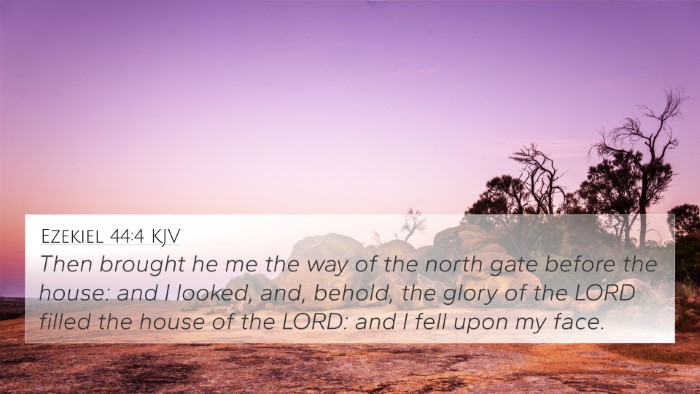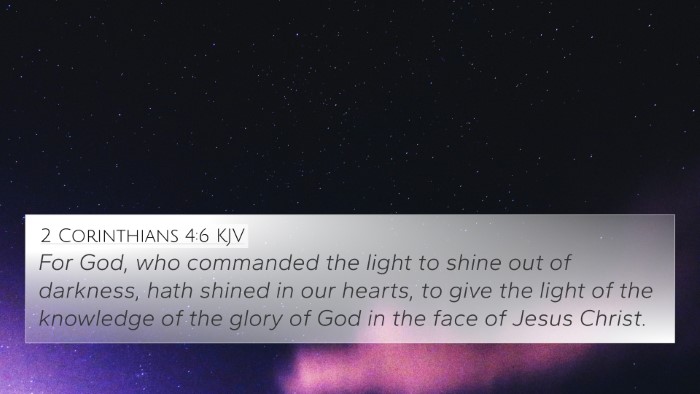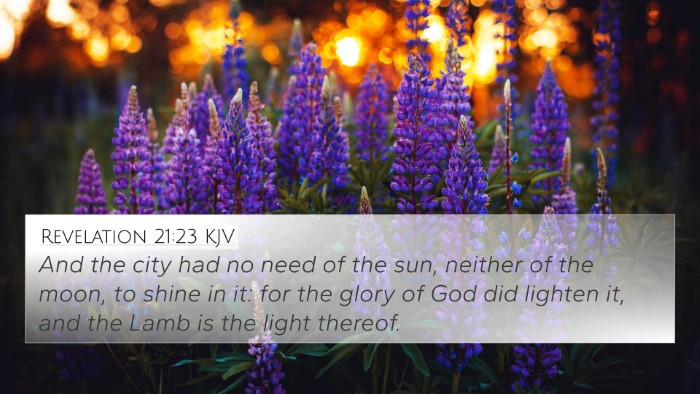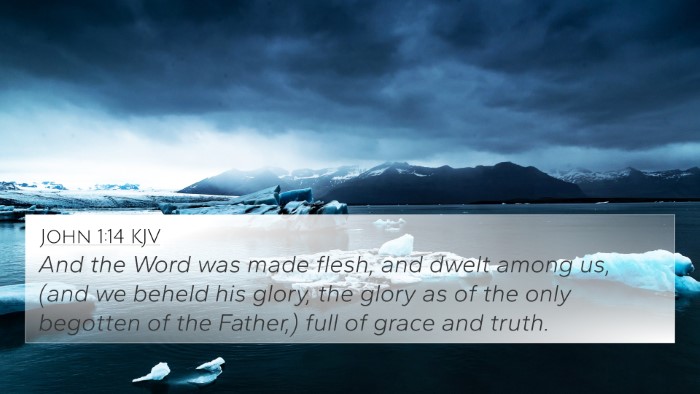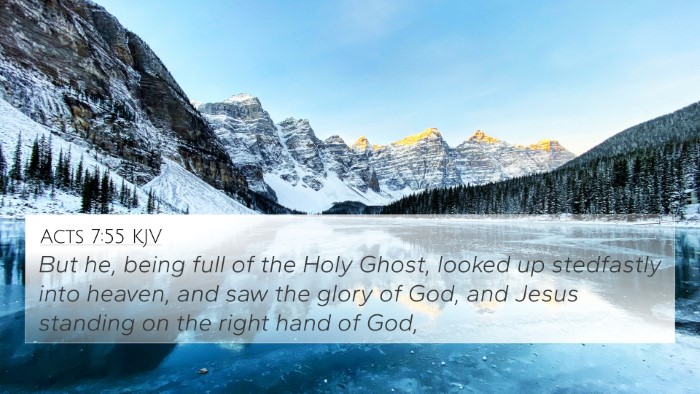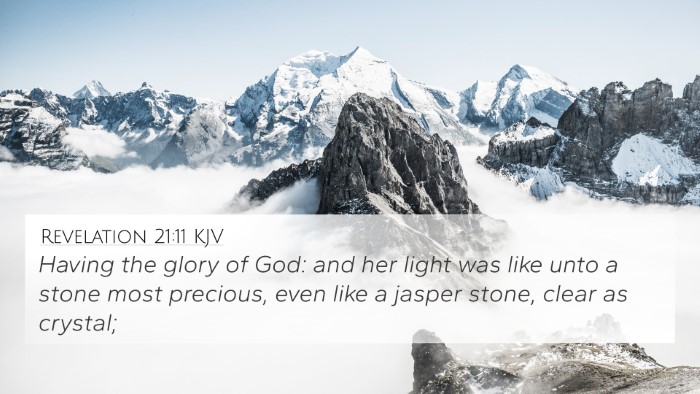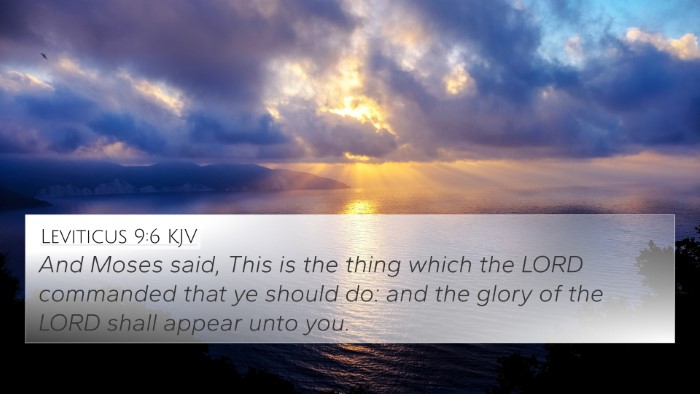Understanding 1 Kings 8:11
The verse 1 Kings 8:11 states: "So that the priests could not stand to minister because of the cloud: for the glory of the Lord had filled the house of the Lord."
Overview
This verse highlights a monumental moment during the dedication of Solomon's Temple. It emphasizes the overwhelming presence of God's glory, depicted here as a cloud, which rendered the priests unable to perform their duties.
Commentary Insights
Matthew Henry:
-
Matthew Henry notes that the cloud symbolizes the divine presence and majesty of God. It signifies that God is not only present but also intimately involved in the worship of His people.
-
He indicates that the inability of the priests to minister suggests the magnitude of God's glory—an occurrence that requires reverence and awe. The presence of God is so powerful that it transcends human ability to perform religious functions.
Albert Barnes:
-
Albert Barnes reminds us that the cloud, often referred to in the Scriptures as the Shekinah glory, serves as a visible manifestation of God’s holiness and power. Such appearances were a rare privilege and marked significant events in Israel's history.
-
Barnes also emphasizes that this moment confirms God’s approval of the temple as a place of His dwelling amongst His people, making it a sacred space intended for divine worship.
Adam Clarke:
-
Adam Clarke elaborates on the significance of the cloud as a representation of God's presence, interpreting it as a reminder of His covenant with Israel. It serves to reassure the people of God's ongoing relationship with them.
-
He points out that the priests' inability to fulfill their ministerial roles indicates that human efforts are insufficient when confronted with divine glory, highlighting the need for God’s grace.
Bible Verse Cross-References
- Exodus 40:34-35: "Then a cloud covered the tent of the congregation, and the glory of the Lord filled the tabernacle." This passage parallels the significance of God's glory in the context of His dwelling place.
- 2 Chronicles 5:14: "So that the priests could not stand to minister by reason of the cloud: for the glory of the Lord had filled the house of God." This is a direct correlation and reinforces the theme of God's overwhelming presence.
- Isaiah 6:1-3: "In the year that King Uzziah died, I saw also the Lord sitting upon a throne, high and lifted up, and his train filled the temple." This verse connects the notion of divine glory filling a sacred space.
- Luke 1:35: "And the angel answered and said unto her, The Holy Ghost shall come upon thee, and the power of the Highest shall overshadow thee." This refers to God's intervention and presence in a significant moment, reminiscent of the cloud of glory.
- Revelation 15:8: "And the temple was filled with smoke from the glory of God, and from his power; and no man was able to enter into the temple." This verse captures the theme of divine glory inhibiting ministerial work in a temple context.
- Ezekiel 10:4: "And the glory of the Lord went up from the cherub, and stood over the threshold of the house; and the house was filled with the cloud, and the court was full of the brightness of the Lord's glory." This emphasizes the continuous theme of God’s glorious presence in His dwelling places.
- Psalm 29:9: "The voice of the Lord crieth unto the cities, and the wisdom of the Lord is in the temple." This reflects the importance and significance of God’s presence in areas dedicated to worship.
- John 1:14: "And the Word was made flesh, and dwelt among us, (and we beheld his glory, the glory as of the only begotten of the Father,) full of grace and truth." This New Testament reference connects God’s glory through Christ, highlighting intertextual relationships.
Thematic Connections
The theme of God's glory filling His sanctuary resonates throughout Scripture, bridging the Old and New Testaments. From the cloud enveloping the Tabernacle in Exodus to the manifestation of Christ’s glory in John, the continuity of God's presence in worship settings establishes a significant pattern of divine engagement with humanity.
Conclusion
1 Kings 8:11 serves as a powerful reminder of the incomprehensible glory of God, which moves beyond human ability and understanding. It emphasizes the sacredness of worship in the presence of God and the reverence that must accompany it. As believers delve into the meaningful cross-references and thematic connections related to this verse, they embrace a profound understanding of the interplay between divine presence and human worship.
